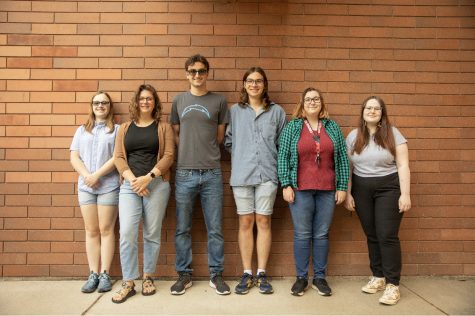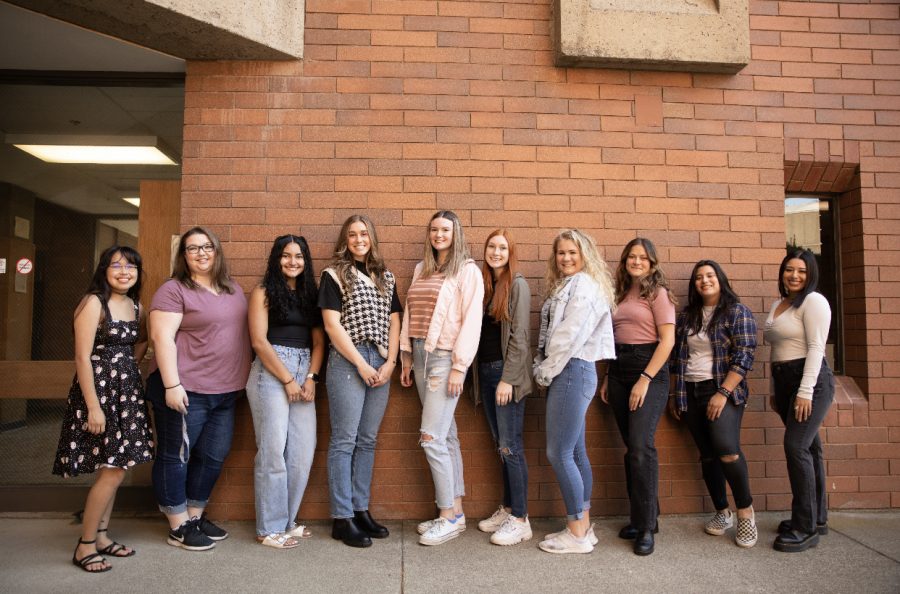Wildcat Academic Mentoring program began this fall
WAM mentors (left to right): Chloe Cairns, Madeline Bjorn, Olivia Zavala, Natalie Amos, Anna Richardson, Sidney Grimm, Maggie Gatlin, Kiara Zmiarovich Sadaya, Tiffany Ochoa, Jacque Ramirez. Photo courtesy of Julia James
October 12, 2022
Wildcats Academic Mentoring (WAM) launched this fall, which is an all-new peer mentoring program created and directed by Julia James.
James said WAM is an academic success program that also balances emotional and mental wellness with self-care.
On the wellness and self-care side of WAM, it’s all about helping students who may be struggling in their lives and it’s about being a listening ear for them.
“You can have students that are engaging so much in social time that their academics are suffering,” James said. “You also have students who are like sleep, do classwork, sleep, do classwork and they’re forgetting to eat or spend time with friends or have those other parts of life that are really important for our mental health.”
While the peer mentors are not trained mental health professionals, they are trained to help students find the resources they need, whether that be counseling, disability services, etc.
James said there is no conversation surrounding why a student struggles in classes without the conversation about how a student struggles in their personal life.

“Something I’ve really been learning as a learning support professional in these last years of my career is that you can’t really separate those things,” James said. “They’re inextricable.”
With WAM, students’ individual strengths and needs are acknowledged by personality matching them to a peer mentor. To do this, students fill out a survey and then go in and have a face-to-face conversation.
Carson Fast, music performance senior and WAM mentor, said one thing they can help with in WAM is learning how to prioritize school and life.
“We can also help build daily schedules, like ‘Oh, I need a morning routine or I need something to help me study better and so we help with that,’” Fast said. “Helping them [with] academics and understanding how to be a college kid, how to interact with people professionally and still get what you need out of the courses.”
If students are struggling to remember things they read in a textbook, they can also learn textbook reading strategies or note-taking strategies. If a student needs help reaching out to a professor, WAM can help with that.
Fast said the reason why she became a mentor in WAM is to help students like her.
“I wanted to help students with disabilities because I have disabilities myself,” Fast said. “I just want to help students with ADHD just kind of figure out college because it was definitely a learning curve and really hard for me.”
Natalie Amos, first-year graduate student studying psychology and a graduate mentor in WAM, said the academic side of WAM is also about making things more simple for students.
“We will kind of just break down every component of their classes and see, ‘Hey, you said you’re struggling in this area, but let’s look at all the factors that are influencing that,’” Amos said.
For students who believe WAM can help them, they can go to cwu.retain.io and click the red Wildcat Academic Mentoring button to schedule an appointment.

